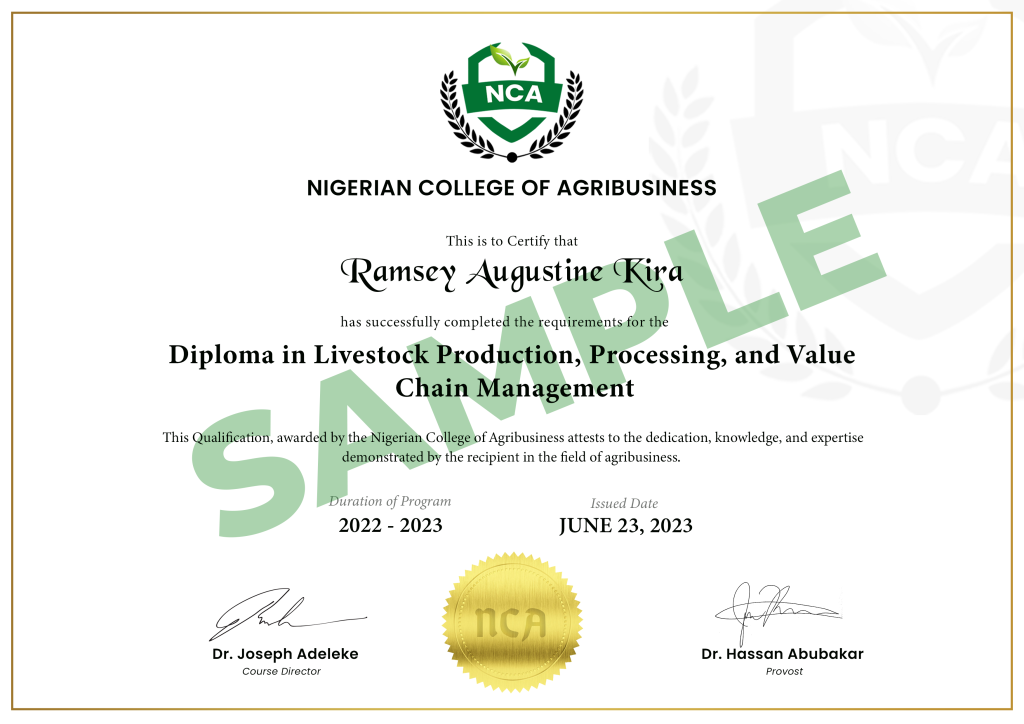November 27, 2023
16 Weeks
N350,000
10% Discount for Early Birds
$500
ONLINE

Beneficiary Bank: Zenith Bank Plc
Account Number: 1228461510
Account Name: Nigeria College of Agribusiness
Do you need any further assistance regarding this program, send an email to: [email protected] or send chat with a program executive on WhatsApp via: 08109532513 (Nigeria), +2349129158989 (International)
Ready to Begin your application process? Click on “Apply Now” to access the application form

Our mission is to cultivate a vibrant, sustainable and profitable agribusiness sector that drives economic growth and social progress across Africa and beyond.
We are committed towards educating a new generation of agribusiness sector leaders that will transform the economic fortunes of the African continent
© NCAEDU 2023 All Rights Reserved.